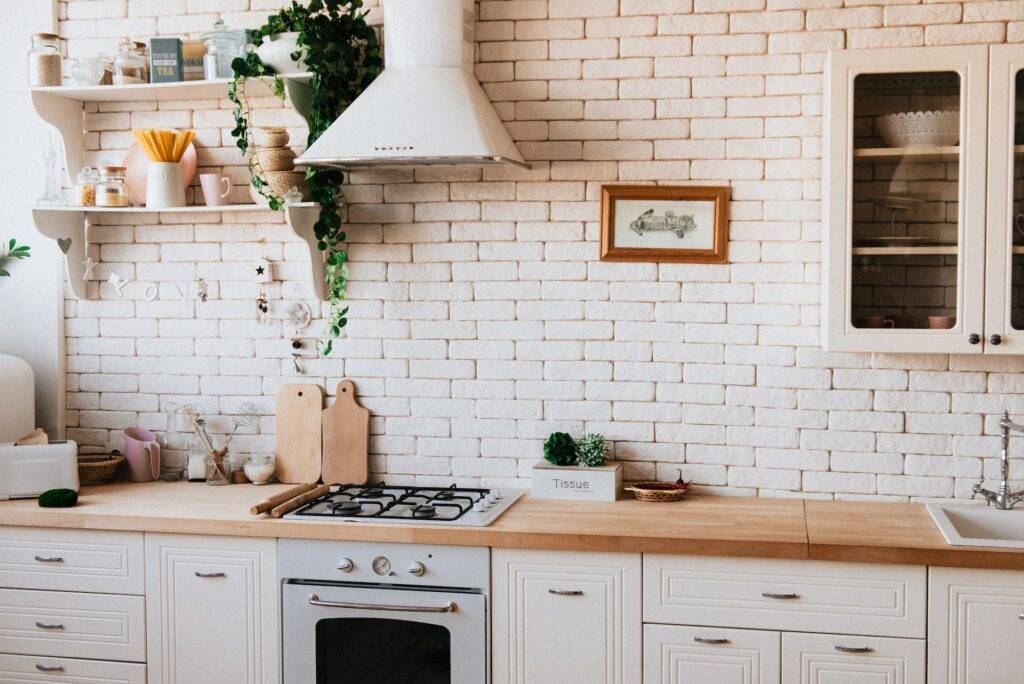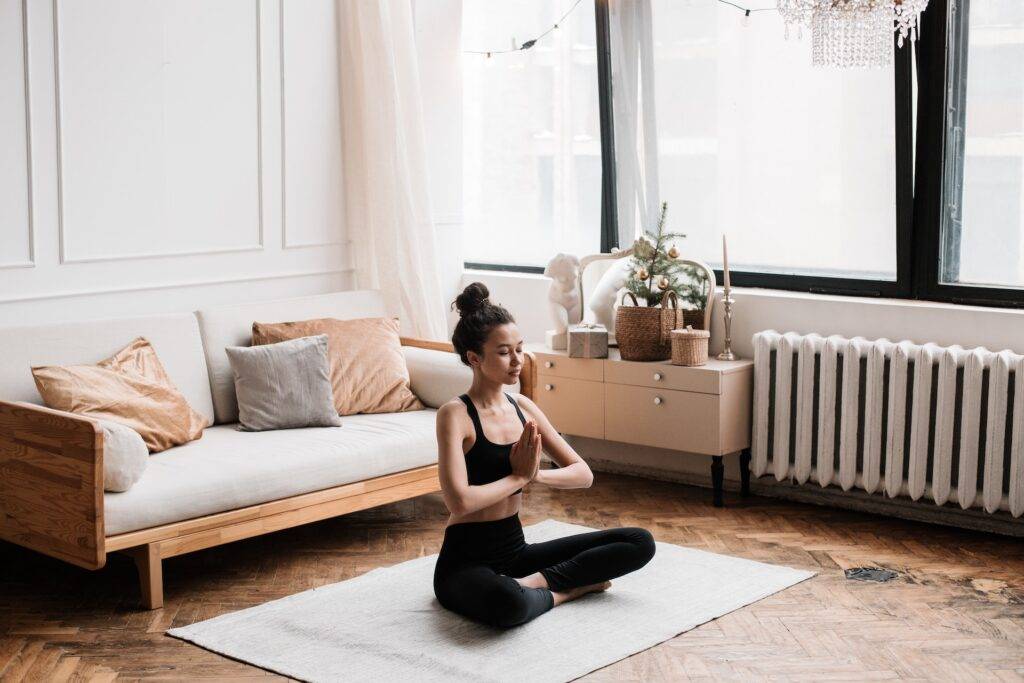This post may contain affiliate links, and Sweet Lyfe Daily may earn a small commission from purchases made through link at no additional cost to you. As an Amazon Associate Partner, Sweet Lyfe Daily may earn a commission from qualifying purchases. Please do your own research before making any purchases. Please click to read our full Disclaimer. Thank you for your support.
Minimalism has become increasingly trendy over the past decade. Similar to messaging and content glamorizing hustle culture and consumerism, you’re equally likely to encounter numerous forms of media promoting minimalism and discussing why and how you should adopt it. The popularity of minimalism has emerged as a response to the constant bombardment of messaging and societal pressure to accumulate more and strive for more. Minimalism offers a path to counter this messaging by encouraging us to simplify our surroundings and prioritize what truly matters.
While minimalism often brings images of empty spaces and stark aesthetics to mind, it encompasses more than just decluttering physical possessions. Minimalism is a mindset that we can embrace in various practical ways. In this blog post, we will delve into the benefits of minimalism and explore seven practical ways to embrace minimalism stress-free. By incorporating these minimalist practices into your life, you can experience the rewards of intentional living and create a more fulfilling and purposeful existence.
What is minimalism?
Minimalism is a versatile concept that gets interpreted in various ways, but its fundamental principle revolves around being intentional about our core values while eliminating distractions. It encourages us to possess fewer belongings and be thoughtful about what we choose to keep. Minimalism is not simply owning the fewest things possible or adhering to a specific lifestyle. Instead, it is a powerful tool that enables us to break free from fear, worry, overwhelm, guilt, and other negative emotions. By adopting minimalism, we can embark on a journey of introspection and intentionality, gaining deeper insights into our core values and aspirations.
Benefits of Minimalism
There are many benefits to embracing minimalism. Here are a few for thought:
1)Streamlined Environment:
Embracing minimalism allows us to release unnecessary possessions intentionally, thereby reducing physical clutter. By streamlining our belongings, we create a clean and organized environment free from distractions. With fewer items, we can easily find what we need, simplify our daily routines, and maintain a clutter-free living space.

2) Reduced Stress and Anxiety:
Adopting a minimalist lifestyle promotes clutter-free physical, digital and mental spaces. Research has shown a direct correlation between clutter and elevated cortisol levels, the body’s primary stress hormone. By prioritizing a clutter-free living environment, we can experience reduced stress and anxiety.
3) Financial Freedom:
Consumerism often traps us in a cycle of endless spending and accumulating things and debt. Embracing minimalism encourages us to question spending habits and differentiate between needs and wants. By adopting a more intentional approach to consumption, we can make conscious choices that align with our values, save money, and free ourselves from the burden of unnecessary things and debt. Minimalism empowers us to prioritize experiences and long-term financial stability over fleeting material possessions.
4) Gain Time:
By reducing physical possessions, we have less to clean and organize, resulting in more available time. Hence embracing minimalism enables us to prioritize effectively and engage in fewer activities, and free up white space to engage in activities that align with our values. Check out this article on the benefits of doing less.
5) Heightened Mental Clarity:
Minimalism eliminates distractions and the overwhelming feeling that often accompanies clutter. As a result, you experience a sense of openness and organization in your life, leading to improved mental clarity and the ability to focus.
6) Increased Storage Capacity:
Adopting a minimalistic approach to your belongings naturally creates more space in your home. With fewer possessions, you can utilize your storage areas more efficiently.
7) More intentional living:
Minimalism promotes intentional living by encouraging individuals to consider their choices, possessions, and actions purposefully. It promotes carefully evaluating your needs and values before making a purchase. Also, by decluttering physical and mental spaces, minimalists gain clarity on their values, goals, and aspirations. They can then direct their time, energy, and resources toward pursuits that align with their priorities. Most importantly, it encourages a shift in mindset from the purpose of material possessions to the quest for meaningful experiences and relationships.

How to Embrace Minimalism Stress-Free
1) Streamline your sanctuary:
While this task may seem straightforward, it can be challenging for many individuals. Decluttering requires letting go and honestly evaluating your possessions. I suggest thoroughly taking an inventory of your possessions, from clothes and toys to appliances or books, and determining what you truly don’t need. It’s important to note that the goal is not to end up with just one plate and spoon unless that aligns with your preference, nor is it about depriving yourself of necessary items.
Rather it’s the practice of determining what possession you need versus want and editing accordingly. To avoid becoming overwhelmed, start small by focusing on one area of your home, such as your closet or just one container. Take your time with the process; it’s more like a marathon than a sprint. Remember, decluttering should not add stress to your life but rather be a mindful practice of letting go of what no longer serves you.
2) Declutter Your Digital Life:
In today’s digital age, it’s easy to get overwhelmed by the constant stream of notifications, social media, and online clutter. Digital minimalism encourages a mindful and intentional approach to technology. Start decluttering your digital life by unsubscribing from unnecessary newsletters, deleting unused apps, and organizing your files and folders. Take control of your notifications by turning off those that are not essential.
Finding a balance that works for you is important – digital minimalism doesn’t mean completely disconnecting but rather creating intentional boundaries. Limit your screen time and establish designated technology-free zones to promote healthier habits and a more balanced relationship with your devices. Remember, technology can bring joy and value to our lives, so the aim is to find a healthy balance and create space for digital engagement and moments of disconnection.
3) Trading Things for Memories:
In a society driven by consumerism, it’s common to associate happiness with accumulating material possessions. While certain possessions can bring joy and convenience to our lives, true fulfillment often comes from experiences rather than an abundance of things. Instead of constantly acquiring more stuff, consider investing your time and resources in experiences that leave a lasting impact.
Explore the wonders of your local community, embark on exciting travels to new destinations, or delve into new hobbies and activities that ignite your passion. By shifting your focus to experiences, you’ll discover that life becomes more meaningful, fulfilling, and enriched. Remember, the memories and moments created through experiences often surpass the fleeting satisfaction derived from material possessions.

4) Re-Examine Your Social Circle:
Minimalism goes beyond decluttering physical possessions; it also applies to our social lives. Carefully examine your social circle and assess the relationships that genuinely bring value and joy to your life. Letting go of toxic connections that drain your energy and detract from your overall well-being is crucial. By releasing these negative influences, you create space and time to invest in relationships with people who inspire, motivate, and support you. Nurture meaningful connections that align with your values and foster a sense of fulfillment and positivity in your social interactions. Remember, surrounding yourself with individuals who uplift and bring out the best in you is a vital aspect of intentional living.
5) Simplicity Meets Style:
Now, let’s talk about the idea of avoiding fast-paced fashion. You’ve probably heard about the importance of supporting ethical and sustainable brands that prioritize fair labor practices and environmentally-friendly production methods, and these are certainly valuable principles to embrace. However, I also understand that we all operate within different income brackets, and affordability often becomes a primary concern. But fret not; there are still ways to practice minimalistic fashion, even when affordability is a priority.
First, consider stepping back from constantly pursuing new trends unless a particular item genuinely sparks joy for you. Take the time to assess your current wardrobe and even take pictures to remember what you already have, thus avoiding unnecessary duplicates.
Additionally, seek out affordable pieces that you know will last for a long time and can be combined to create a variety of outfits. You can avoid overbuying while building a wardrobe you genuinely love by taking a moment to reflect before purchasing. Remember, incorporating conscious consumption practices into your fashion choices is commendable, but finding a balance that works for your budget and circumstances is important as well.
6) Slow Down, Live in the Present:
Minimalism extends beyond simplifying our physical possessions; it also encompasses decluttering our minds. Embrace mindfulness and meditation practices to clear your thoughts and anchor yourself in the present moment. While meditation offers numerous benefits, incorporating mindfulness into everyday activities is equally valuable. You can practice mindfulness in various ways, whether it’s savoring each bite during a meal, being fully present while walking, or finding peace in the rhythm of household chores.
You acquire a deeper sense of peace, clarity, and awareness by cultivating mindfulness. It allows you to let go of distractions and connect with the present moment, fostering a greater appreciation for the simple joys and experiences surrounding you. So, take a moment to pause, breathe, and fully engage with the present moment.
7. Gratitude in Action:
In addition to the previous principles, practicing gratitude is a powerful way to embrace minimalism and cultivate a simplified mindset. Set aside time each day to reflect on what you are grateful for, big or small. It could be the warmth of the sun on your skin, the kindness of a friend, or the comfort of having a roof over your head. Practicing gratitude cultivates a minimalist perspective by helping you let go of the constant desire for more and instead find satisfaction in the simple pleasures and blessings around you. By consciously acknowledging and appreciating the blessings in your life, you shift your focus from what you lack to what you already have.
Last Sweet Words
Embracing minimalism is a personal journey, and there is no right or wrong way. Explore, experiment, and discover what resonates with you on your path to intentional living. By embracing these ways to simplify your life, you will not only declutter your physical space but also create room for nurturing meaningful social connections, mental clarity, and fulfilling experiences. Practicing minimalism can be a transformative journey, and its true essence lies in intentionally living a life of purpose, meaning, and joy.
Happy decluterring, Sweet Friends!
Sweet Lyfe Daily
Let us know in the Comments, how you plan to practice minimalism?





